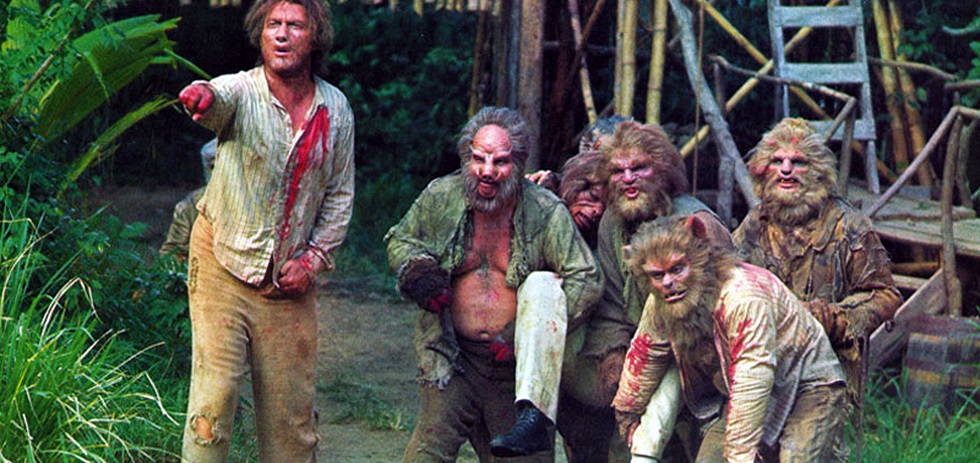
The latest offering from Severin Films (the distribution company behind the release of Birdemic and their fair share of D’Amato, Franco, and Fulci flicks), Lost Soul: The Doomed Journey of Richard Stanley’s Island of Dr. Moreau, is a documentary chronicling the infamously troubled production history of New Line Cinema’s 1996 adaptation of The Island of Dr. Moreau. Although the documentary suffers from the usual issues associated with a low budget (hokey credits, an overbearing score, and an overall feeling of cheapness throughout) nothing can detract from its content – when it kicks into gear and the shit truly hits the fan there’s more than enough pure insanity to keep Lost Soul both engaging and entertaining.
For those of you who are unaware, The Island of Dr. Moreau has a crazy and nightmarish production history and is a thing of legend amongst fans of cult cinema. In the mid ’90s Richard Stanley, hot off the back of Hardware and Dust Devil, convinced New Line Cinema to fund his transition into mainstream cinema, a self-penned adaptation of The Island of Dr. Moreau. After securing Marlon Brando for the titular role, a feat which Stanley partially attributes to witchcraft(!), and cycling through a few directors (at one point Roman Polanski was even attached) and more than a few leads, Stanley was set to bring his vision of the Moreau tale to fruition in Cairns, with Val Kilmer and Rob Morrow attached to star alongside Brando. Then disaster struck; just four days into shooting a coked up Kilmer decided to stir the pot, and Stanley was fired off the picture. New Line, having pumped too much money into the picture to see it fail rushed to find a replacement, eventually bringing John Frankenheimer in to pick up the pieces after giving him an offer he couldn’t refuse.
What ensues is absolute insanity; a three week shoot stretched out to over four months, and Marlon Brando did everything in his power to completely ruin the film – in fact, the second half of this documentary is worth watching for the crazy Marlon Brando anecdotes alone. While Lost Souls never questions if Brando’s behaviour is his a response to firing of Stanley – a theory that would have been an interesting avenue to traverse especially considering Stanley seems to share some sort of spiritual connection with Brando – there was more than enough to keep me engaged, and the lack of explanation for Brando’s actions just adds to their hilarious infamy.
Structurally, the documentary is comprised of interviews with studio execs, the production crew, extras, a few of the leads (most notably Rob Morrow and Fairuza Balk), and Richard Stanley himself. Vox-pops are intercut with footage from The Island of Doctor Moreau, production stills, home-video footage from on the set, and stock footage used to evoke mood behind the interviewees statements. This footage is underscored by a fairly loud and over-the-top soundtrack that feels a bit misplaced throughout, although it does start to gel with the rest of the film in the latter part of its runtime.
While this isn’t the greatest documentary out there about failed productions (Lost in La Mancha about Gilliam’s failed Don Quixote project comes to mind), and its production values leave something to be desired, for those slightly interested in what goes on behind the scenes of larger productions Lost Souls proves itself entertaining viewing and is probably worthy of your time. For those already familiar with the tumultuous production history of The Island of Doctor Moreau this is a must-watch.
